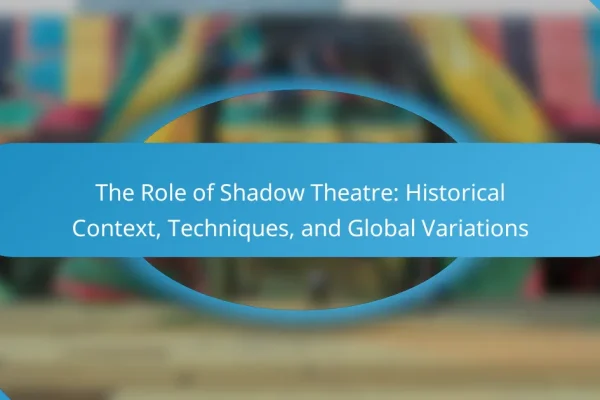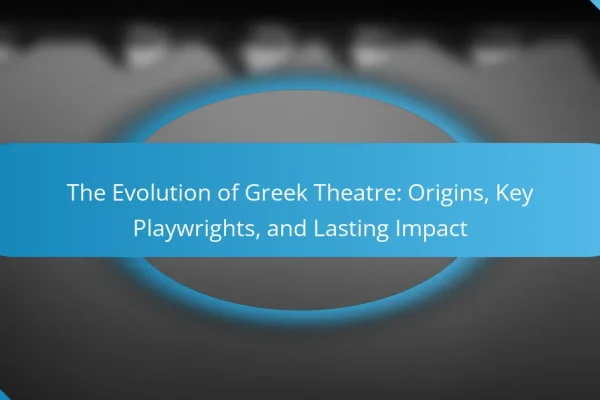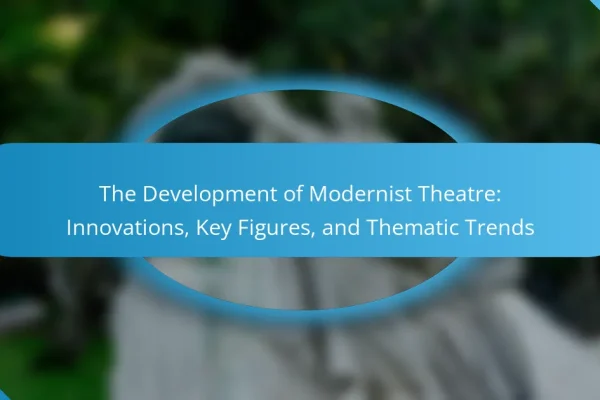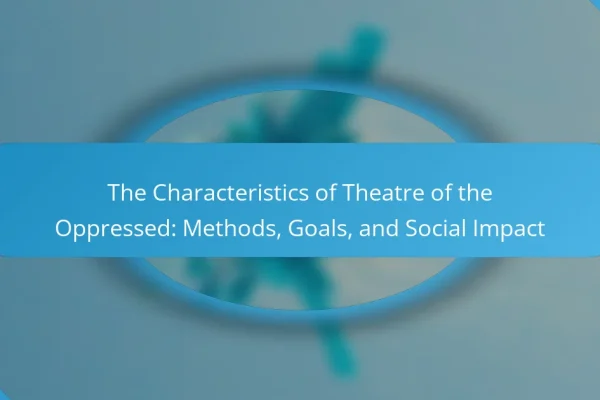
The Rise of Experimental Theatre: Defining Features, Key Practitioners, and Cultural Relevance
Experimental theatre is a performance genre that challenges traditional theatrical conventions through innovative storytelling, unconventional structures, and audience interaction. Key practitioners such as Jerzy Grotowski, Antonin Artaud, and Robert Wilson have significantly influenced its evolution, introducing concepts like the “Theatre of the Poor” and the “Theatre of Cruelty.” This genre addresses contemporary societal issues, fostering…








